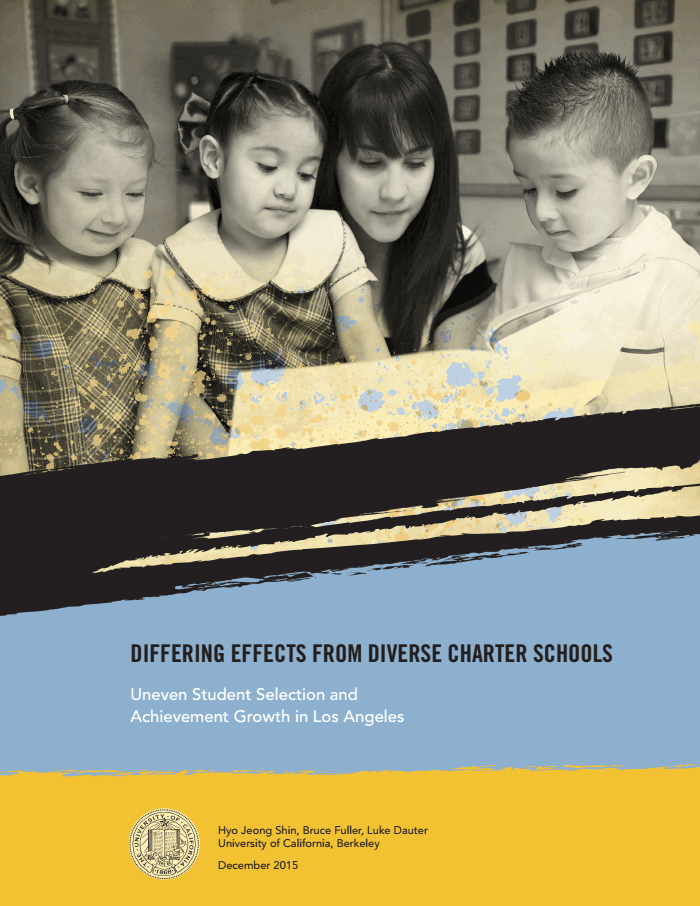Education Law Prof Blog: Charter School Study Offers New Findings on Student Achievement, Student Enrollment, and Teachers

A new study by researchers at the University of California, Differing Effects from Diverse Charter Schools: Uneven Student Selection and Achievement Growth in Los Angeles, offers interesting and complex new findings about how charter schools differ from traditional public schools, particularly in regard to the students and teachers they attract. Their breakthrough appears to be a function of distinguishing start-up charter schools from conversion charter schools. This allows them a new baseline against which to make comparisons:
Their major findings include:
- [in elementary school], conversion charters attracted pupils with considerably higher ELA and math scores, 0.34 SD and 0.32 SD higher at baseline than the respective means for TPS peers.
- Conversion charters served a much lower share of Latino pupils, compared with the mean TPS (55% versus 77%), and a much lower percentage of children eligible for subsidized lunches (50% versus 84%). In short, conversion charter schools fill niches in economically better-off parts of LAUSD. Differences were similar when comparing students among charter and TPS middle schools.
- The organizational niches filled by start-up and conversion charters emerge even more vividly when turning to high schools . . . . The 28 start-up charter high schools enrolled pupils with significantly higher test scores at baseline. The mean ELA score for these students was 0.40 SD higher than TPS peers on average.
- These sectors also varied in terms of the kinds of teachers each attracted and retained. Many conversions essentially inherited their teaching staff after winning their independent status, while gaining discretion to attract the preferred mix of new teachers in the future. Table 3, beginning with elementary schools, shows that start-up charters employed much lower shares of tenured teachers or those with full credentials, although charter elementary schools tended to employ a higher share of teachers with masters degrees, compared with TPS peers. Just 19% of elementary teachers at start-up charters Charter schools in Los Angeles had tenure at baseline, compared with 63% employed by conversion charters and 86% at TPS campuses. These differences are reflected in the mean years of teaching experience: 4.8 years Education Law Prof Blog: Charter School Study Offers New Findings on Student Achievement, Student Enrollment, and Teachers | National Education Policy Center:
